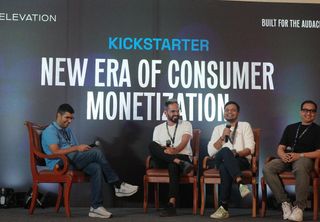SaaS and AI: Year in Review 2024

Recapping the biggest trends of 2024 and our SaaS and AI initiatives

SaaS and AI: Year in Review 2024

Recapping the biggest trends of 2024 and our SaaS and AI initiatives

The Year of AI - A Leap in Advancements
2024 was a pivotal year for AI, where it moved beyond buzzwords and into the realm of real budgets, real adoption, and real business outcomes. The macro and micro forces of AI adoption aligned, supported by foundational advancements in infrastructure and applications. OpenAI released GPT-4o and GPT-4o1, enabling application platforms to deliver superior reasoning and problem-solving capabilities. Claude launched 3.5 Haiku for agentic tasks, while DALL-E 3 and Sora set new standards for high-quality image and video generation.
Open source innovation also accelerated, with models like Llama 3.3 demonstrating that smaller, more efficient architectures could deliver competitive performance, significantly lowering costs. Our own portfolio company Meesho is set to open source its ML Platform so that their large-scale, high throughput serving model architecture can be used by millions of developers and data scientists globally to leverage the power of AI more effectively. The biggest leap has been in the cost of inference and how since the first few GPT releases two years ago has gone down by a factor of 100 (~$50 to $0.50 per 1M tokens) - making AI accessible to smaller businesses and startups.
“These technological leaps aren’t isolated—they reflect the convergence of macro drivers like improved AI infrastructure, a maturing developer ecosystem, and greater capital availability. Together, these factors created fertile ground for new companies to innovate and scale, making 2024 a landmark year in the AI revolution in India and globally.”
Enterprise AI: From Experimentation To Execution
In 2024, AI moved beyond the buzzword stage, solidifying itself as a core strategic priority for enterprises worldwide. A staggering 65% of Fortune 500 companies referenced AI in their annual reports, signaling not just curiosity but commitment. This wave of adoption was further fueled by enterprise services giants like Accenture and EY, which collectively allocated over $1 billion to AI initiatives, driving adoption across sectors.
“AI’s influence is extending far beyond traditional software budgets—it’s now making inroads into labor spend, fundamentally reshaping how businesses allocate resources.”
In areas like customer support, legal review, and healthcare documentation, AI isn’t just complementing human effort; it’s outright replacing repetitive, manual tasks. Globally we have seen, sales agents are relying on AI-powered platforms like PolyAI and Clay to handle routine work, enabling them to concentrate on closing deals and building relationships. One of our stealth portfolio companies is automating the human-intensive investigator workflows in Fraud and Risk while companies like Meesho and Swiggy are able to automate a huge part of their customer service chats. This shift from automating processes to reducing direct labor costs represents a profound value unlock for businesses. AI is no longer just a line item in software budgets—it’s a tool to optimize workforce efficiency, reduce overhead, and redefine the roles humans play in organizations. By capturing labor spend, AI isn’t just making businesses faster; it’s making them leaner, more agile, and better equipped to compete in the digital-first economy.
Agents In Crime: Shift From A Support Tool To A Strategic Partner
2024 marked a revolutionary shift in how businesses viewed AI—not as a tool to assist, but as a full-fledged partner driving results. The rise of AI Agents has unlocked unprecedented levels of autonomy in workflows, enabling businesses to automate complex, outcome-driven processes across industries - reflecting in AI Agents market growing at 44% CAGR. Eg, We see customer support evolving from Jira tickets to an autonomous system of resolving queries via voice agents (Eg, Cognigy, Yellow.ai).
“What makes these agents transformative is their ability to deliver outcomes that extend beyond software efficiency.”
Businesses have started to now measure success through concrete metrics such as faster issue resolution (in support agent), leads conversion (in sales agent), or collections received (in loan collection agents). While last year was mostly about text as modality, this year we also saw massive growth in other modalities such as voice or video.
Additionally, there is a growing wave of infrastructure and developer tools companies to enable building these robust autonomous agents that serve enterprise-grade requirements. We made huge leaps in this category in the last 2 years by investing in UnifyApps to create a foundation by connecting data silos and creating an enterprise grade agentic platform, Composio to create an agentic framework, and Maxim AI to ensure high-quality and observability post deployment.
Service with an AI Smile: India’s Strategic Advantage
As AI adoption soared in 2024, it became clear that not every enterprise could rely on off-the-shelf solutions. Unique needs, security concerns, and complex integration requirements called for a more tailored approach—enter the rise of service-led models for AI adoption. This shift mirrors earlier transitions in tech, such as how AWS eased businesses into cloud computing or WordPress democratized web creation through human-assisted workflows. We have all seen the Palantir stock rise in recent times by using their forward deployed engineer model to enable enterprise AI adoption.
We feel that India is uniquely positioned to lead this transformation, thanks to its legacy of IT services and strategic advantages in talent and cost efficiency. For instance, Infosys has developed AI service models to help global retailers personalize customer journeys, while Wipro is working with healthcare providers to streamline claims processing with AI automation. Startups are also capitalizing on this trend. Take Fractal Analytics, which works with Fortune 500 companies to design bespoke AI solutions for everything from fraud detection in BFSI to demand forecasting in retail. Similarly, Tredence is helping enterprises unlock actionable insights by integrating AI into their supply chain operations, improving efficiency and reducing costs.
“We believe this is a unique opportunity for new Indian companies to emerge and capitalize on this growing AI services wave.”
The Playground Is Open
AI spending surged by almost 6x as compared to 2023 - showing growing confidence in the space and strong conviction over what lies ahead. During the SaaS revolution, India was almost two decades behind the US- First SaaS IPO in US (Salesforce) was in 2004 vs first Indian SaaS IPO (Freshworks) in 2021. However, in AI- we’ve been hand-in-hand with our global counterparts with a significant chunk of Indian VC funding going to AI-first startups in the last few years. Indian companies have access to high quality developers (with highest contributions to AI repositories on GitHub after US), access to quality capital and a cross-border opportunity to create for the world.
“As we step into 2025, the opportunities for AI feel limitless. The past year laid the groundwork for an era of unprecedented transformation, with advancements in AI Agents, services-led models, and deep vertical integration paving the way for a future defined by intelligence, autonomy, and outcomes. This isn’t just a continuation of AI’s rise; it’s an inflection point for how businesses, industries, and even societies evolve.”
AI is opening doors to markets that didn’t exist a decade ago, creating products that redefine industries, and enabling solutions that were once the stuff of science fiction. The stage isn’t just set for a transformative decade—it’s set for a future where intelligence, autonomy, and creativity are seamlessly woven into the fabric of business and life. The potential is vast, but so are the responsibilities. Founders, investors, and businesses must navigate this landscape thoughtfully, balancing innovation with ethics, scalability with inclusivity, and ambition with accountability.
New Partnerships, Growing Relationships & Portfolio Highlights
This year, we were fortunate to partner with several pioneering companies that are reshaping their respective sectors.
We partnered with Maxim AI as Vaibhavi Gangwar and Akshay Deo launched their enterprise-grade evaluation and observability platform for AI applications. With the explosion of large language models, the need for robust testing frameworks has never been more critical. Vaibhavi and Akshay's deep expertise in AI and developer tools, gained from their tenure at Google and Postman, gave us immense conviction in their ability to tackle this challenge head-on. Read our investment memo.
We backed Composio through their Seed round as Karan Vaidya and Soham Ganatra build an integration platform for AI Agents and LLMs. Their platform enables AI Agents to interact with hundreds of applications and tools to perform autonomous actions, addressing the critical need for seamless integration between LLMs and enterprise tools. With support for over 250 integrations including GitHub, Salesforce, and various development tools, Composio is well-positioned to become the foundational layer for building and deploying autonomous AI agents.
We backed UnifyApps by leading their $11M Seed round and were thrilled to double down in their $20M Series A led by ICONIQ Growth, given their rapid scale-up and strong early customer traction. With the average enterprise using nearly 400 SaaS applications, Pavitar Singh and team are tackling a critical challenge in enterprise software. Their unique approach of bringing AI capabilities to all departments and personas through their Unified Enterprise AI Agent platform, combined with the team's deep expertise from building and scaling Sprinklr, positioned them perfectly to transform how businesses handle integrations. Read our investment memo.
We were equally excited to partner with Plotline, founded by Adarsh Tadimari and Shubham Jindal, as they build their data-driven dynamic app experiences platform. Their no-code solution enables B2C marketers to provide truly customized in-app experiences based on user behavior and preferences.
On the follow-on front, we deepened our partnership with Everstage through their $30M Series B as they continued to redefine RevOps and sales compensation for organizations globally. The company has come a long way in five years, enabling businesses to design and manage complex commission plans while providing real-time visibility to sales teams. Read our investment memo.
We were also thrilled to continue backing Sprinto with their $20M Series B as they disrupt cloud security and compliance. Under Girish Redekar and Raghuveer Kancherla's leadership, the company has created a superior product that has enabled hundreds of customers to achieve their compliance requirements. Similarly, our participation in Nanonets' $29M Series B reflects our belief in Prathamesh Juvatkar and Sarthak Jain's vision of reimagining document and workflow automation using AI.
We're also thrilled to congratulate Sneha Roy, Ankur Edkie, Divyanshu Pandey and the entire Murf AI team on being named 'AI SaaS Startup of the Year' at the SaaSBoomi Awards 2023.
Building For The AI-First Future
Welcoming Krishna Mehra & Strengthening Silicon Valley Presence
A major highlight of the year was welcoming Krishna Mehra as an AI Partner to lead our SaaS and AI investments. Krishna's unique combination of experiences as a founder, operator, and investor makes him an invaluable addition to our partnership. His proven track record across all three roles - as a pioneering founder who helped establish India's early SaaS footprint, as an operator who led large-scale tech teams at Meta and Cohesity, and as an investor who has consistently identified transformative companies at their earliest stages - sets him apart.
Based in the San Francisco Bay Area, Krishna's addition strengthens our presence in the world's most vibrant tech ecosystem. This is particularly crucial for our founders building in SaaS and AI, as they increasingly look to serve global markets from day one. His presence deepens our commitment to the India-US corridor - not just supporting Indian founders building for global markets, but also engaging with Indian diaspora founders leveraging talent and innovation across both ecosystems.
Launching SaaS Compass
One of our most significant initiatives this year was the launch of SaaS Compass - a comprehensive platform designed to help early-stage founders navigate their journey confidently. The platform brings together field guides, access to global networking and mentorship, and our own perspectives stemming from our experience in backing visionary founders for over two decades.
At the heart of SaaS Compass are our incredible Captains - experienced operators and founders deeply committed to supporting Indian SaaS founders. These leaders bring decades of expertise across product, engineering, sales, marketing and growth from leading global SaaS companies. Throughout the year, they have generously shared their knowledge through field guides, hosted office hours with founders, and provided hands-on guidance to help companies solve critical GTM and scaling challenges.
Knowledge Exchange & Community Building
Throughout the year, we published extensive content and hosted numerous events focused on two critical areas: Go-To-Market (GTM) and AI implementation & strategy.
GTM
We kicked off with the SaaS Compass GTM Bootcamp in Bengaluru, bringing together nearly 100 early-stage founders and GTM leaders. The event featured tactical sessions from successful founders like Arvind Parthiban (SuperOps.ai), Siva Rajamani (Everstage), and Sneha Roy (Murf AI) who shared insights on various GTM motions -from inbound demand gen to scaling US enterprise GTM and building repeatable PLG motions.
Our GTM content series included several comprehensive field guides:
- Vikram Bhaskaran's guide on Initial Marketing Choices offers a framework for early-stage founders to make critical decisions about inbound vs outbound GTM, paid vs organic methods, and content investment timing
- Arundhati Balachandran's playbook provides a step-by-step approach to building and scaling sales teams in lockstep with revenue growth
- Siva Rajamani's guide on US Enterprise GTM delivers a comprehensive framework for product readiness, social proof creation, and building the right sales team for enterprise markets
- Neej Parikh's field guide outlines the LASER framework for building and sustaining successful outbound GTM engines
AI
As AI emerged as a transformative force, we organized several focused sessions to help founders navigate this shift.
- Debdoot Mukherjee's workshop on operationalizing LLMs provided practical strategies for deploying AI at scale, drawing from Meesho's real-world implementations across search, customer support, and engagement
- Madhukar Kumar's session on navigating the new SEO landscape explored how founders can adapt to Google's AI-powered search changes and shift from SEO to Knowledge Engine Optimization
- Rajan Sheth's "Winning in the AI Market" webinar provided a comprehensive framework for creating differentiated GTM strategies in the AI era, drawing from his experience positioning Cohere in a competitive market. In a different AMA session in Bengaluru, Rajan shared tactical insights on marketing and growth strategies for tech-focused companies, covering everything from developer marketing to strategic positioning
- Manish Jindal's session on "Navigating the AI era" provided invaluable insights into evolving GTM strategies, drawing from his experience scaling Cloudflare from pre-revenue to $1B+ and current role at DevRev
Community Events
We co-hosted an engaging evening with Foster Ventures in the Bay Area that brought together our SaaS Compass Captains, founders, and ecosystem players. The discussions highlighted the growing maturity of Indian SaaS companies and the unique advantages of building across both ecosystems.
A particular highlight was our Women in SaaS mixer in Chennai during SaaSBoomi, which brought together outstanding female leaders shaping India's SaaS landscape. The event fostered meaningful connections and discussions around the unique perspectives and experiences of women in tech leadership roles.
Throughout the year, we continued to share our perspectives on emerging trends and opportunities. In our Manufacturing 4.0 series, we explored the transformation of India's manufacturing sector through technology. The culminating piece examined key tailwinds and emerging technologies poised to redefine the landscape, from Digital Twin technology and IoT PaaS to telematics and supply chain traceability.
Looking Ahead to 2025
As we enter 2025, we remain more excited than ever about the potential of Indian SaaS and AI companies. The ecosystem has matured significantly, with Indian companies increasingly going to market with sophisticated, AI-native products that compete globally.
We're grateful to all our founders, partners, and the broader ecosystem for an incredible 2024. If you're building something exciting in SaaS or AI, we'd love to hear from you at ai@elevationcapital.com.
Here's to another year of innovation and impact!
See you on the other side!
Related

Vridhi: Reimagining Home Lending For Bharat's Self-Employed
Ram Naresh Sunku, Co-founder, Vridhi Home Finance
11.12.2024

Investing in Plena Data
Automating manual accounting tasks and improving employee experience with robots
14.10.2021

Monetization Strategies That Work: Insights from Consumer Tech Founders
Insights on what works when it comes to monetizing consumer apps in India.
10.12.2024